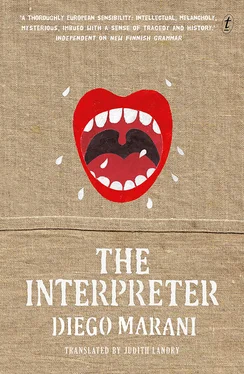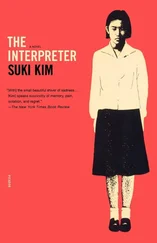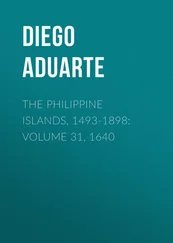I left Mirko Stolojan’s house on foot; it was not yet two o’clock, but already the sun was going down, and thick white mist was rolling in from the sea, settling over the shoreline but stopping at the woods. Anchored at the edge of the bay, the cruise ship was now nothing more than a ghostly, shapeless presence. A siren hooted in the distance and the harbour lights started flashing. Suddenly seized with a burst of panic, I stumbled through the pebble-strewn sand, but the effort caused my head to swim and I had to pause for a moment on the grass. In the goods yard I at last found a taxi to take me back to the hotel, where I found the foyer in a state of uproar; people were talking at the tops of their voices, and the smoke was as thick as the mist outside. Seated on the sofas, several photographers were fiddling with their cameras; a reporter was heaving his cinecamera onto his shoulder. Seeing me coming in, the porter gestured at me in alarm from behind his desk. I was about to go over to him, when I found myself surrounded by black-uniformed police. Cameras flashed, photographers clustered round me, jockeying for position; I could hardly breathe. I tried to fight my way towards a chair, but a man with fleshy pink lips burst through the cordon of policemen and pushed his way towards me threateningly, grabbing me by the elbow and dragging me into the manager’s office.
‘Are you Mr Tibor Preda?’ he asked in German, leafing through my passport.
‘That’s me,’ I lied.
‘Inspector Zabukas, border police.’ He handed me back my passport and clasped his hands behind his back.
‘Mr Preda, I must ask you to come with me,’ he said in a solemn tone, summoning two other policemen with a flick of his fingers. I allowed myself to be led out without a struggle, already thinking of new headlines in the Swiss and Romanian papers. I’d be back on the front page with a new photograph, the new clean-shaven face of the Beast of Bukovina, this time with handcuffs. I would inspire new editorials, crowds of journalists would be waiting for me at Bucharest. I’d see Magda again — in a courtroom. They’d question us, try us and sentence us; in the dark confines of some godforsaken prison, they might even rough us up — out of sheer rage, by way of punishment, to make us confess to other crimes we didn’t commit. I’d end up in some stinking cell where, stricken with illness and brought low by violent treatment, I might find death at last. It was better that way; that was how things should end.
We left the office and went out into the street, dodging the photographers who were waiting for us in the foyer; the man with fleshy lips was walking beside me, with the policemen following. We crossed the road and walked towards the sea. I wondered what our final destination would be; I was expecting to be bundled into a police car and driven off to the police station, sirens blaring, but instead we were walking down the beach. The mist was thicker than ever, and everything was enveloped in the early darkness; the outlines of the narwhals were still just visible in the dark water, though there seemed to be fewer of them. I wondered whether some of them might have managed to make it into the open sea, borne off on the outgoing tide. The man with fleshy lips was walking straight towards them. A wooden footbridge had been laid on the shore, spanning the pool and reaching out into the shallows; I made out several dim figures standing by a narwhal — one of them was the elderly man with the red beard. Beside him, two policemen were unrolling a rope which they then fixed to pickets planted in the sand. It was only then that I saw Burke, awkwardly sprawled over the narwhal, knees bent, arms thrown out; its tusk had skewered his stomach, to reappear, reddened with blood, between his shoulderblades. His expression was one of amazement, even slight amusement; or perhaps incredulous, amazed to have met such a death.
‘Do you know this man?’ the inspector asked me curtly.
‘Yes, he’s called Klaus Burke; he’s my travelling companion,’ I answered faintly. The inspector held out his arms, as though to apologise.
‘We can’t understand how this could have happened! There are no witnesses. It must have been at about one o’clock; the mist had already cleared, and the tide was beginning to turn. Perhaps the creature was trying to ease itself off the sea bed, and felt threatened,’ he suggested in some agitation.
The man with the red beard now joined us, shaking his head.
‘That’s not possible. This morning that one was already dead!’ he objected. Then, turning to me, he added:
‘When we met. Remember?’
He waded a few steps into the water towards the creature, then bent down to run his hand over its pectoral fin.
‘Anyway, a beached narwhal can’t use its tusk; it’s a physiological impossibility!’ he shouted, lifting his nose and thrusting his hips forwards in imitation of a narwhal’s slithering gait. The inspector put his hands into his pockets and looked at him severely.
‘Take him away!’ he said to the policemen, who were standing some distance away, holding a stretcher.
I glanced with some distaste at Burke’s crumpled body as they lifted it clear of the tusk; meeting his glassy stare, I thought perhaps he had met the death that he desired.
I returned to the hotel in some bewilderment. The foyer was deserted; the waiters were picking up the dirty glasses and emptying the ashtrays. I went up to my room and stretched out on the bed, trying to sleep, but I lay awake, tossing and turning, until it was very late. Sensing I had a fever, I wrapped myself up in all the covers I could find and then at last I did sleep a bit, though very uneasily. I was sweating, but my flesh had come out in goose pimples from the cold. I was woken by the sound of rain on the roof; day was breaking, my fever seemed to have abated and my forehead felt unexpectedly cool, though I still felt weak. I threw off the drenched covers and went over to the window: the sea was grey and foam-flecked, fanning out over the beach in broad frothy waves. The cruise ship was still there, lights ablaze, funnels smoking; it hooted twice, as though preparing to depart. I was desperately thirsty; I took a long drink of water from the tap, then took off my clothes and had a wash, noting that my reflection in the mirror was yellower and more stooped than ever. There were yellowish marks around my eyes; my teeth were chattering, though whether from cold or fear I wasn’t sure. I went down to the restaurant, downed a coffee and went out for a listless walk along the beach, my head thronged with a ragbag of thoughts I couldn’t piece together. Memories of my year-long wanderings were paraded before me like snaps in a photo album, the last one being the awful lifeless mask that was Burke’s face. The streets were empty; a few coloured umbrellas were opening up on the landing stages near the aquarium. I wandered back to the hotel without the faintest idea of what I was going to do.
After Klaipeda, the only place left on the list was Tallinn: the last stage of my journey, the dead end of the maze in which I was lost. I was trying to escape the maelstrom for which I was headed, but I knew there was no way out. I thought back to the mysterious house on Perkelos Gatve, and a shudder ran down my spine; perhaps Burke had been murdered, and his murderer was now hot on my trail. I looked around me at the houses, the blocks of flats, the unlit windows, and imagined a gun pointing in my direction, an eye patiently seeking me out in the crosshairs. No, my death was never going to be that easy; the diabolical captain of my fate would never have been satisfied with so little. Almost reassured, I went back to the hotel with the intention of trying to get some sleep before making a decision. I told the man at the reception desk that I was leaving; I didn’t want to admit as much to myself, but I knew I would be going on to Tallinn. I paid the bill and went up to my room; as I pushed the door open, I saw something on the floor. It was a picture postcard of Klaipeda; on the back, in spidery, nervous writing, was one word: Toompea .
Читать дальше












